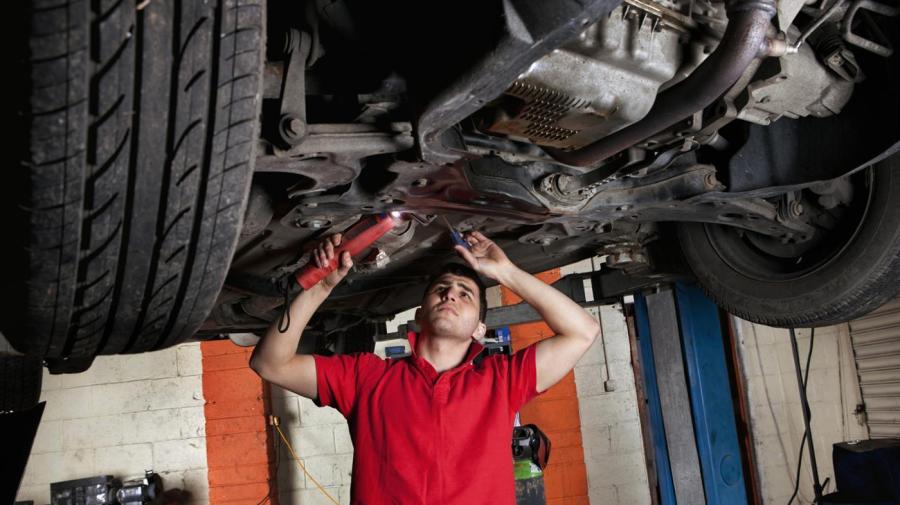What Does a Complete Car Tune-up Include?

A complete car tune-up includes spark plug replacement, rotor replacement, fuel injector cleaning, a new air filter, a new fuel filter, a new PCV valve and checks on various systems, including fluid levels, ignition, emissions, manifold intake, compression, timing, idle, distributor cap, battery, choke, vehicle computer, belts and safety. Anything that shows wear and tear should be replaced during a tune-up.
A tune-up focuses on keeping the engine running at the best level possible. For example, replacing spark plugs includes new spark plug wires to ensure the vehicle ignites gasoline in the combustion chamber properly. A new fuel filter helps keep contaminants out of the engine. Replacing belts and hoses keeps connected parts running in tune with one another for optimum performance. A new air filter improves engine efficiency, while proper fluid levels prevent wear and overheating in the engine.
A vehicle’s tune-up includes preventive maintenance, performance analysis and adjustment. Regular tune-ups are prescribed in a vehicle’s manual, usually when the spark plugs need to be replaced. The normal interval is 30,000 miles, or every two to three years. Otherwise, a tune-up may happen whenever a driveability problem occurs.
Problems solved with a complete tune-up include hard starting, stalling, hesitation, misfiring, bad fuel economy and lack of power. Many cars with onboard computer systems obviate some traditional adjustments because the computer can alter the vehicle’s engine performance.





